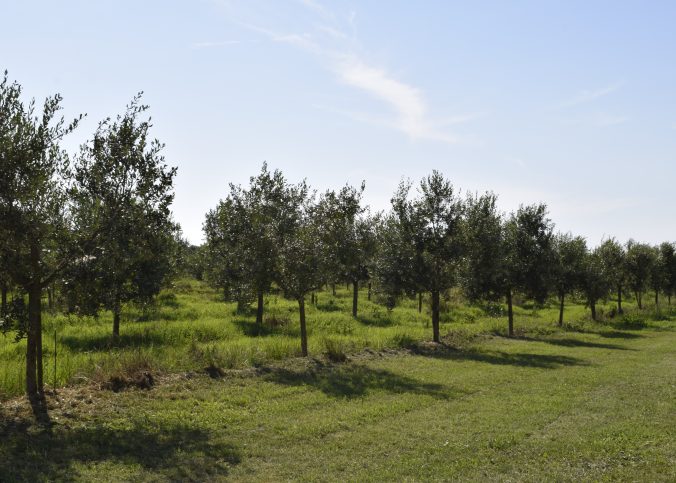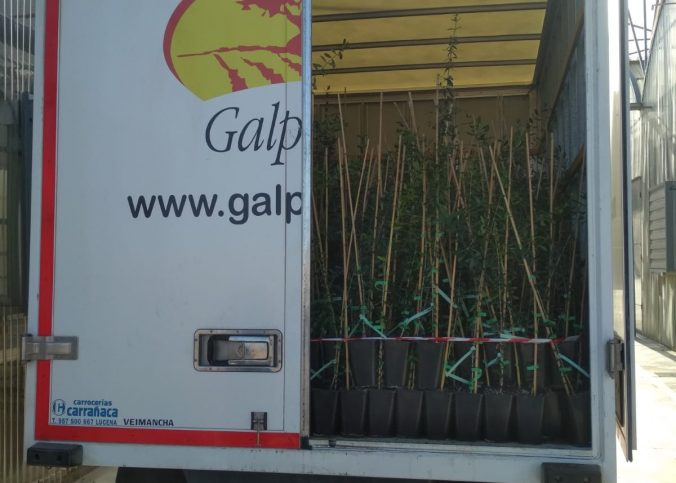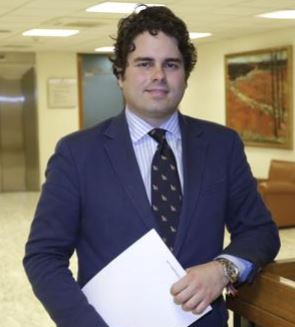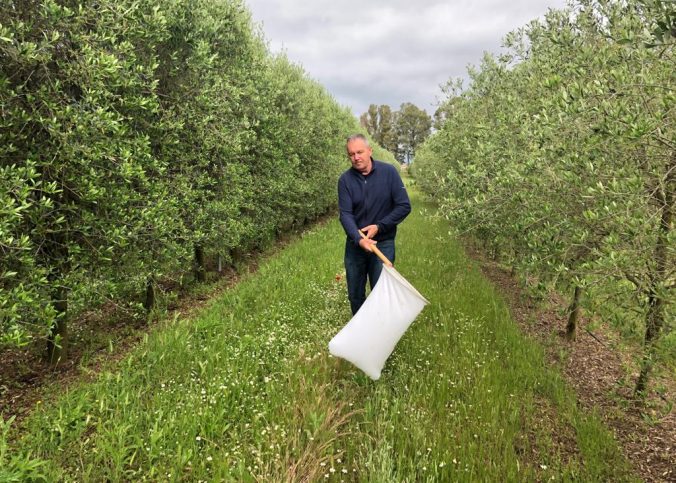Irrigation efficiency is a crucial objective of water management both because of the scarcity of the resource and because of climate uncertainty and variability. The main objective of irrigation programming is to define the quantity adequate water to apply to…
Categoría: Noticias Resilience inglés
For the auxiliary fauna to be established on farms, it is essential to provide them with the basic conditions for their development and proliferation, and this can be done by selecting the most appropriate Ecological Infrastructures. In Life Resilience we…
In Life Resilience participate 9 members. They are a compendium of private companies, universities, agricultural products associations and specialized service companies each of one in an area. They make a perfect tandem for this research project. We tell you which…
Sustainable agricultural practices to prevent Xylella fastidiosa in intensive olive and almond systems WHAT IS IT? LIFE Resilience pursues sustainable solutions aimed at reducing the propagation capacity of XF in intensive olive and almond plantations. An important pillar of the…
The transmission of the bacteria is produced by insect vectors that feed predominantly on the xylem, characterized by having a chopper-sucking mouthpiece. These belong to the families Cicadellinae, Cicadidae, Aphrophoridae and Cercopidae, of the order Hemiptera. The bacteria are transmitted…
Galpagro’s team and the Ucolivo Group of the University of Córdoba have planted the 1st of August the second batch of 550 olive genotypes today. These genotypes have been obtained during two years through crossings between resistant mothers such as…
The Ucolivo group, from the Higher Technical School of Agronomic and Forestry Engineering, from the University of Córdoba has prepared the transport of the second genotype block in their greenhouses. On August 1, these 550 genotypes will be planted on…
Xylella fastidiosa is a gram-negative, aerobic bacterium, found in the xylem. It multiplies inside the vessels reaching to plug them and obstruct the flow of raw sap, which causes symptoms that correspond to lack of water or lack of nutrients…
Asociación de Jóvenes Agricultores (ASAJA) is the largest agricultural professional organization in Spain with more than 200,000 members who work directly on farms, both owners and tenants, as well as family members who collaborate in the exploitation activities. Therefore, since…
Claudio Cantini, the researcher at the Italian National Research Council’s Institute of BioEconomy, is studying a sustainable solution to curb the spread of the disease, Xylella fastidiosa, which is associated with olive quick decline syndrome (OQDS). Preliminary results of a field…









